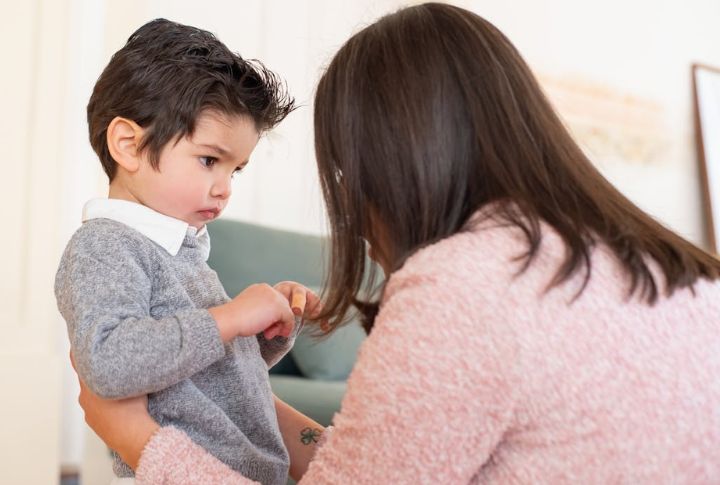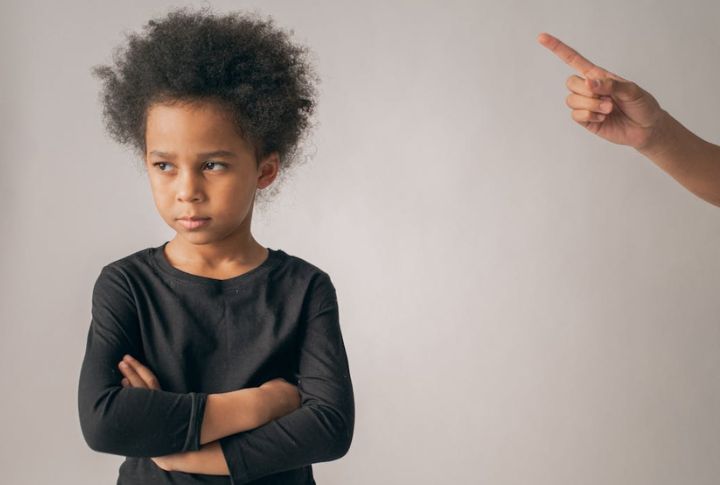
Parents often think they’re shaping strong kids with quick phrases, but those words sometimes echo louder than they realize. The smallest comments can carve deep tracks in self-worth and linger well into adulthood. Curious to see which everyday lines secretly sting? Let’s peel back the sugarcoating and find out.
“Because I Said So.”

The phrase transforms parent-child dialogue into a power struggle. Research published in Developmental Psychology shows that authoritarian parenting, marked by such dismissive commands, also produces children with higher anxiety levels and poorer decision-making skills in adulthood. These kids breed internal resentment that hinders their personality in the long run.
“Stop Being So Sensitive.”

Emotional invalidation teaches children to see feelings as burdens instead of natural human experiences. In fact, it dismisses honest reactions to pain or confusion, leading to adults who doubt their own perceptions. Over time, shame becomes tied to emotional needs. Even with counseling, many grow up retreating into a protective cocoon.
“You’re Being Selfish.”

When children express needs or set boundaries, parents often label them “selfish,” which can discourage healthy self-advocacy. The child also feels that prioritizing well-being equals wrongdoing. No wonder adults raised with such messaging struggle to establish limits. They become people-pleasers who sacrifice their needs for others’ approval.
“Calm Down.”

These dismissive commands reveal parental discomfort with accountability rather than addressing legitimate concerns. Kids learn that the emotional responses are excessive or inappropriate, which leads them to question their own perceptions. The phrase trivializes genuine distress and creates confusion around emotional expression.
“You’re Too Different.”

Self-centered parents shame children for authenticity, whether through emotional expression or neurodivergent traits. The criticism often stems from parental preoccupation with appearances rather than celebrating individuality. At a young age, they internalize the message that their true selves are unacceptable and develop a deep shame.
“I’m The Parent, You’re The Child.”

Power trumps understanding when parents deploy rank to silence legitimate concerns. Young people absorb the cruel lesson that age equals automatic wisdom, while the perspectives remain worthless. Hierarchical communication also destroys trust and brings up teens who either rebel destructively or become dangerously compliant, never learning healthy negotiation skills.
“You’ll Understand When You’re Older.”

The ultimate conversation-ender dismisses curiosity as immaturity. Kids begin to believe that what they understand has little value. This breeds insecurity about intelligence and sends the message that questions annoy rather than show healthy growth. As adults, they second-guess judgment and hesitate to seek clear explanations.
“You’re Ungrateful.”

Love transforms into currency when appreciation becomes mandatory rather than natural. Youngsters discover that gratitude must be performed on command, which transforms genuine appreciation into fearful compliance. These kids learn that feelings matter less than parental comfort. They also tend to develop people-pleasing tendencies and chronic shame that follows them into every future relationship.
“Is This The Best You Can Do?”

If perfection is the minimum standard for parents, it poses a significant problem for kids. Young achievers hear “Why only a B+?” instead of celebration, and end up learning that their best efforts are disappointing for caregivers. The study “Parents’ Use of Praise and Criticism in a Sample of Young Children” found a constant criticism between perfectionism and anxiety disorders. These teens develop a fear of failure so intense that they avoid challenges.
“Other Kids Don’t Have A Problem With This.”

A phrase like this makes kids feel defective, as if their struggles are personal failures. They don’t see it as encouragement—they hear judgment. The weight of comparison can even smother self-worth and turn every challenge into proof they’re falling behind, no matter what strengths they actually carry.

